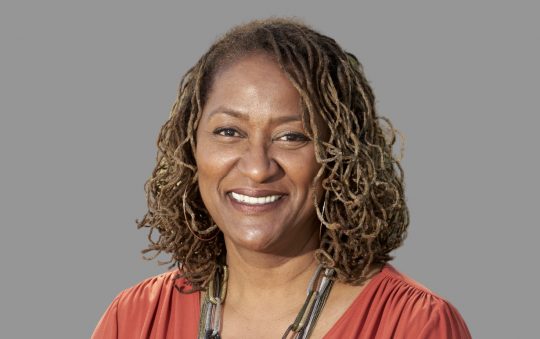While President Franklin Roosevelt and a Democratic-led Congress were crafting the New Deal in the 1930s, and defending its Depression-era social programs against Republican opposition, First Lady Eleanor Roosevelt amplified the voices of America’s youth when she expressed that she was terrified of losing an entire generation. America’s youngest workers, predominately in low-wage, low-skilled jobs, were most severely impacted then and during every major economic downturn since. The New Deal operationalized the most comprehensive relief, reform and recovery effort in U.S. history. It was inclusive of youth, providing young men and women with access to employment opportunities and financial assistance, though not equitably. Because of segregation, African Americans received less financial support than their White counterparts, even when they applied for it.

Today, the coronavirus pandemic has pulled back the covers on the deep inequalities that have plagued Black and Brown people and, broadly, communities of color since this nation existed. A recent national survey of young adults of color by nonprofit talent development accelerator LeadersUp shows that a majority (60 percent) of Generation Z and young Millennial workers (ages 16-–30) are not receiving any type of public assistance at this unprecedented time. Most are part-time workers or in the gig economy, so they do not have health insurance. They are the first to go and the last to return to the workforce, yet ineligible for traditional unemployment benefits. More than half (52 percent) of respondents said they are in living arrangements that financially support their families, children or friends. This labor market disruption could mean significant loss of household income. What’s more, youth disconnection leads to adult disconnection. Young adults’ failure to launch their careers in their early 20s, while incurring debt and unable to gain the skills or experience necessary to fill the jobs of the future, is both detrimental on the micro-level (individual) and macro-level (economic growth).

The next generation of talent could be called Generation Stress. These young adults have lived through 9/11, the recession of 2008 and, now, a global pandemic has canceled school and graduations, and placed their dreams of financial independence on indefinite hold. In L.A., unhoused college students and those living in food deserts are at risk of hunger daily. They also are at risk of COVID-19, part of a grim statistic of adults between ages 18 and 49 dying at disproportionately higher rates.
However, the youth of this generation are not unlike their predecessors who lived through wars, infectious diseases and shortages of essential goods and services. They need support during the crisis and they will after, as well. Those in leadership must amplify their voices to ensure those most deeply impacted by COVID-19 are not left out of the recovery. We must catalyze economic mobility for our youth to ensure their futures, which is what the New Deal intended but failed to do for African Americans. At this moment, many of our young people have basic needs for food and shelter, and to sustain their health and well-being. It’s important that they know what they are entitled to through the California Employment Development Department.

Under the federal CARES Act, part-time and gig economy workers not eligible for traditional unemployment insurance can apply for pandemic unemployment assistance. It also covers business owners, the self-employed and independent contractors for up to 39 weeks through December 26, 2020, and up to a 13-week extension for those who run out of regular unemployment benefits.
Fewer than half of low-wage workers (those making less than $14 an hour) have access to paid sick leave. Anyone unable to work because they have or have been exposed to COVID-19 can file a disability insurance claim with the state. Caring for a family member who is ill or quarantined? You may be eligible for Paid Family Leave of up to six weeks of payments equal to approximately 60 to 70 percent of your wages.

Short-term relief will help young adults support themselves and their families; mitigate economic outcomes that are largely tied to social issues; gain confidence in the marketplace; and jumpstart spending.
If young people from disadvantaged communities are not applying for these benefits, we can only assume they are unaware of them or lack Wi-Fi access at home. Let’s be diligent about getting the word out to ensure that the economic circumstances of young people who either were struggling or starting to make gains before COVID-19 aren’t deepened during this crisis.
Jeffery Wallace is president and CEO of LeadersUp, which connects employers with the untapped potential of the next generation of diverse talent.







